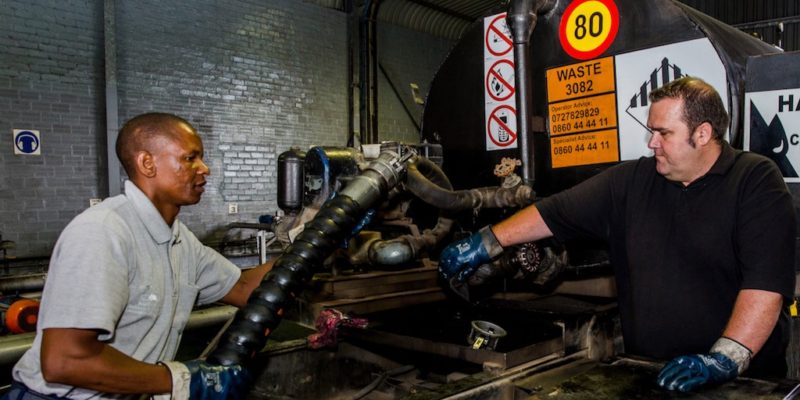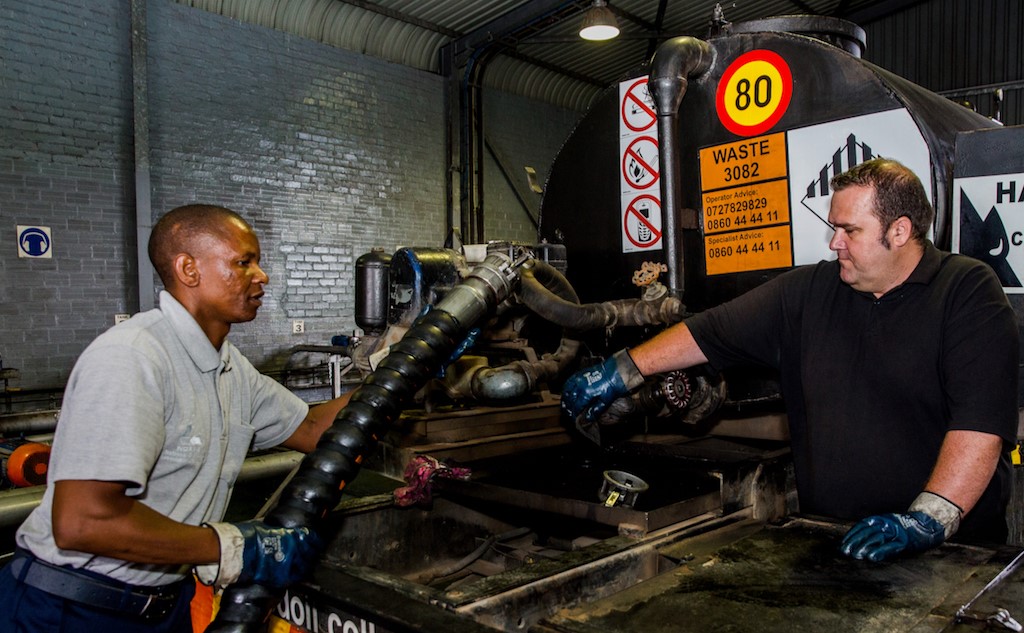The used oil industry in SA is bucking the current trend and creating a significant number of jobs.
According to the latest figures from the Quarterly Employment Statistics (QES) survey, released by Statistics South Africa, South Africa has seen a decrease in the number of jobs being created. However, a survey commissioned by The ROSE Foundation (Recycling Oil Saves the Environment) shows that a significant number of jobs have been created through the recycling of used oil.
According to the research house conducting the study, The Research LampPost, the results indicate that approximately 1,300 staff ranging from drivers, labourers and administrators, to operators and managers, are employed in the sector.
Data from 84 licensed collectors and 11 licensed processors and 13 licensed bulking points, was included in the study. This was then used as a basis to estimate the total employment contribution for the collection and processing of an estimated 120 million litres per annum of used oil in South Africa.
Demographically, the employment profile is predominantly male (85%) and African (64%). In larger operations, the top management is mostly African (37%) or white (34%). In smaller businesses, the sole operators are 41% African, 41% white, 12% Indian and 6% coloured.
The majority of collectors and processors are situated in Gauteng, where the biggest volumes are collected. Nearly 50% of the oil is collected in Gauteng. The bigger collectors (600kl/pa or more) collect 75% of the used oil identified in the study.
The study results show the used oil industry as a highly competitive business, with most collectors saying that the biggest challenges they faced were fierce competition and pricing, which in turn affected their profit margins and sustainability. Despite this they continue to operate and many of the part-time collectors show entrepreneurial flair in combining used oil collection with other services such as selling automatic lube systems, fire suppression, garage equipment and hydraulics, hazardous waste removal, scrap metal collection, cleaning wash bays and collection and processing of plastic oil bottles and used oil filters.
“This is a recycling success story – the used oil industry is a sustainable sector that not only employs many people but also effectively supports their dependents,” commented ROSE Foundation CEO, Bubele Nyiba. On average each collector participating in the study supports 4.2 dependents.
“Recycling can only work if it is economically sustainable and the ROSE foundation’s challenge is to ensure the environmental imperative is supported by an effective recycling business model – we offer support in the form of training, audits, equipment and incentives, and we work with all the lubricants industry stakeholders towards continuously increasing recycling volumes.”
For more information and to find out about registered collectors and processors contact the ROSE Foundation on (021) 448 7492 or visit www.rosefoundation.org.za.


